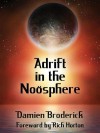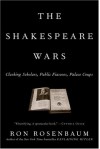In 2014, the landscape of cloud computing has changed significantly with the ongoing price wars between the three major vendors: Google, Amazon, and Microsoft. New technology in cloud has led to more user convenience, as well as deploying systems with a smaller environmental footprint than traditional mainstream data centers. However, cloud providers face a stormy future amid litigation threatening the security of data stored by cloud users, as well as the liability cloud vendors face.
Price wars in enterprise cloud lead to savings for businesses
Undeniably, the big story of the year is the massive extent to which cloud prices have fallen. On March 25, 2014, Google slashed the prices of all of its cloud offerings, with Compute Engine prices cut 32%, data storage cut 68%, and BigQuery cut 85%. Further discounts can be had with sustained use discounts, cutting the reduced prices by a further 30%. Microsoft followed suit on September 25, 2014, announcing more modest price cuts to Azure cloud services.
Over the last six weeks, more creative price reductions have been introduced, with Amazon introducing upfront billing for cloud services, with savings up to 75% off the on-demand prices for three-year agreements. Amazon also has lowered the price of outbound data transfer for US and Europe centers by 25%, Australia by 26%, and Tokyo by 30%.
A renewed focus on renewable energy
Advancements have also been made in cloud computing becoming more ecologically friendly. In November 2014, Amazon announced it will embark on a "long-term commitment to achieve 100% renewable energy usage for our global infrastructure footprint." Additionally, the German company Cloud&Heat introduced a specially-designed cabinet to heat the homes of customers by placing cloud servers into private residences and harvesting the heat generated to warm the air and water.
Legal concerns from US cloud vendors
The big names in cloud vendors are all companies headquartered in the US, but have extensive facilities around the world. An ongoing case against Microsoft for refusing to turn over emails stored on a data center in Ireland has wide implications for the cloud industry. Following disclosures indicating Microsoft's cooperation in transmitting private data of American and international users to federal authorities, competitors Apple and Cisco, as well as telecoms Verizon and AT&T filed briefs in support of Microsoft's position in the case.
Eroding trust in cloud vendors has had a negative impact on US businesses. According to the nonpartisan New America Foundation, "a number of American companies have reported declining sales in overseas markets, loss of customers, and increased competition from non-U.S. services marketing themselves as 'secure' alternatives to popular American products." The precarious position cloud vendors find themselves in has been an issue that has stifled adoption throughout the year.
Outages leave cloud users in a hazy situation
While cost-effective, the enterprise cloud is not bulletproof, as evidenced by an avalanche of service outages this year. Issues apparently related to Border Gateway Protocol (BGP) led to a mass of service outages across various websites in September 2014. Major cloud vendors saw unplanned, protracted downtime as well, with Microsoft Azure services stopping worldwide and coming back up far later in Australia and Asia than the rest of the world. Users of Rackspace and Amazon faced downtime from a reboot needed to patch a bug in the Xen hypervisor, leading to user complaints.

 Log in with Facebook
Log in with Facebook 























